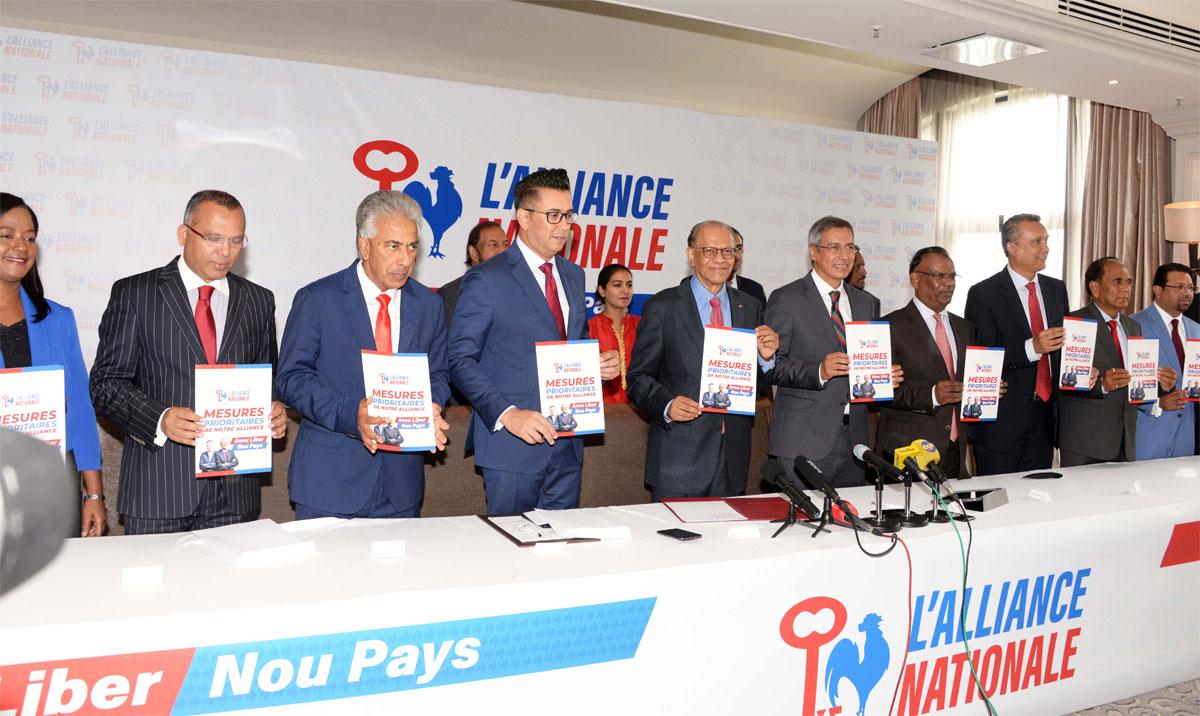Africa-Press – Mauritius. Every general election gives rise to a number of difficulties for the party leadership especially with regard to the selection of candidates, and this is worsened when a party fights the elections in alliance with other parties.
It is therefore not surprising that those who feel that they may not figure on their party’s list for the next polls will grind their teeth or will express their dissatisfaction.
The recent dissidence of a few members of the Mauritius Labour Party and their criticisms of the leadership and the way the party functions, could be perceived as mere excuses to conceal their apprehensions about not being selected to stand as candidates.
That is all the more incomprehensible as all party members and the few who may feel frustrated today have been well aware since they joined the party how it functions and they have accommodated with its weaknesses so long as they could secure a ticket for themselves but would raise an uproar when they feel they may no longer be considered eligible for the next polls.
In Mauritius, to use a Churchillian phrase, there is always a few whose lust for office or a ministry is only equally matched by their incurable incompetence in exercising it.
This article will not discuss the problems that confront the Labour Party and other parties in allocating tickets for general elections. It is simply a reflection on the selection of candidates in our party system, with a few references to local parties where we can substantiate with a few examples.
All over the world political parties have their own methods in selecting candidates for general elections. In the UK, a few years ahead of a general election, the secretary of the British Labour Party will invite applications for candidates for elections, and there may be about 12,000 applications nationwide.
The selection will be based on a number of criteria as, for example, the duration of the applicant’s party membership (at least 12 months), and they must show their active involvement in social organisations or have experience in campaigning, etc.
The selection process is meant to be an objective one but, even then, there may be dissatisfaction with the final selection outcome. For example, left-wing candidates may complain that they have been debarred from the party’s list and blame the selectorate for being biased or being dominated by right-wing members.
In Mauritius, the selection method of election candidates varies from party to party. Candidates can be chosen by a single person, the party leader; usually the latter will set up a small selection panel, that is a small group of persons to draw up a list of potential candidates, or will act in consultation with a group of people, both formally and informally, both within or outside the party.
The selectorate usually comprises members at the highest level of the party, members of the Central or Executive committee or the Politburo. For the 1976 elections, several regional committees of the Mouvement Militant Mauricien (MMM) had a say in the selection of candidates, and there ensued a long tussle at the regional level before the list of candidates could be finalized one week or two before Nomination Day.
As for the Mauritius Labour Party, in 1948 it was the Executive Committee which drew up the list of members from its own Executive Committee to fight the elections; it also supported a number of candidates in and outside the party.
However, all candidates fought the elections as independent candidates. What is less known is that all the members of the Executive Committee, except Guy Rozemont, were defeated.
Even Renganaden Seeneevassen and Dr Millien, who were members of Executive committee, were expelled from the party before the elections for their derogatory remarks towards worker candidates. Unfortunately, no research has been done on how candidates were chosen by the Labour Party between 1953 to 1967.
What is known is that during that period the Executive Committee was a strong body within the party, and even after 1960 when it included within its ranks members of the Parliamentary Labour Party (PLP), it had a decisive say in all the affairs of the party. One can only assume that the list of candidates was a centralized affair.
For More News And Analysis About Mauritius Follow Africa-Press







